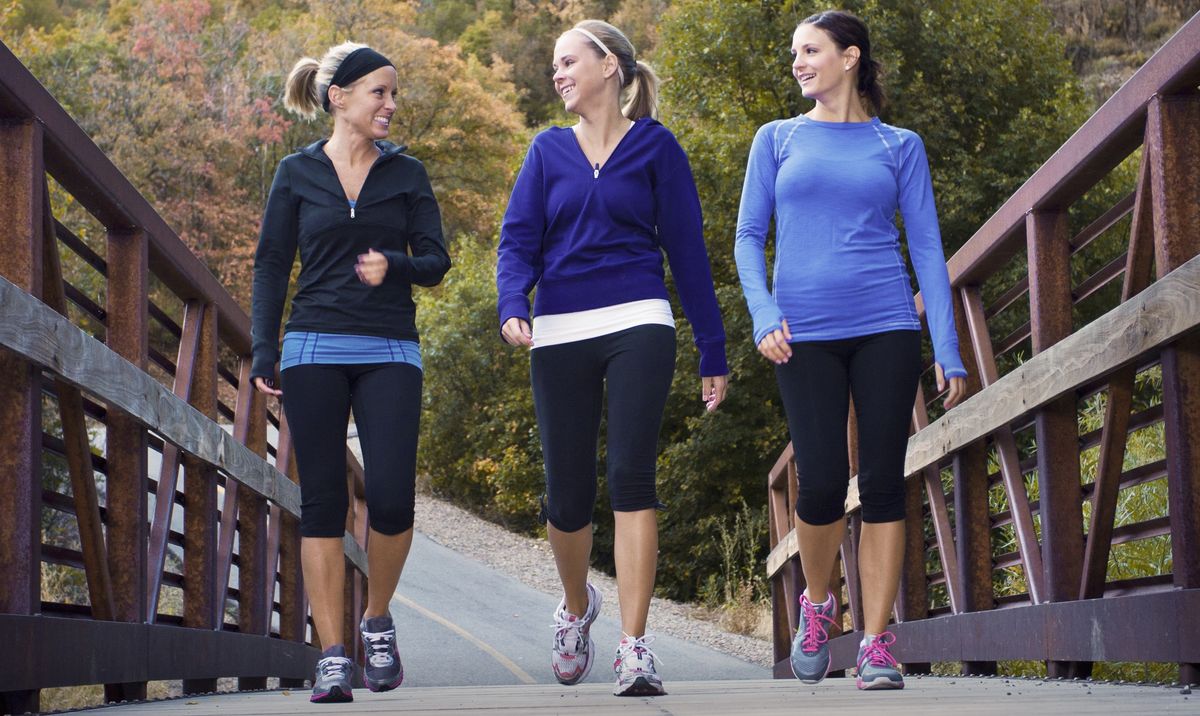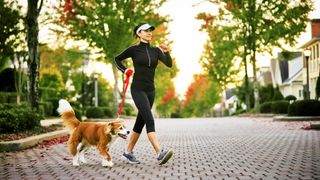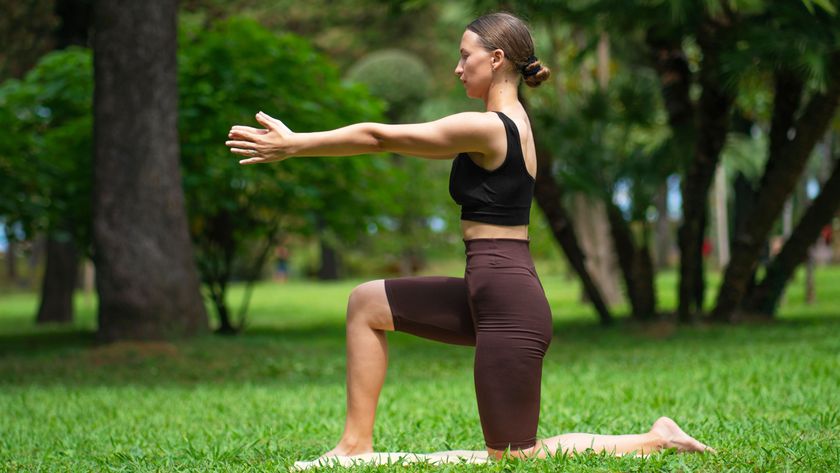Here's what 30 minutes of walking each day can do for your body
Get ready to strut your stuff

Whether you’re walking for weight loss or just re-thinking your commute to work, there are a number of benefits to increasing your daily step count. Plus, while walking for 30-minutes a day might seem like a stretch, that’s just two 15-minute walks or one longer stroll around the park on your lunch break. But what are the benefits of walking on the body?
Compared to other forms of exercise, say running or cycling, walking doesn’t get much attention, but it’s actually a brilliant way to tone up, build muscle, and lose weight. Unlike running, it’s a beginner-friendly workout, and suitable for most people. The best part? You can grab your running phone holder, a coffee, and even the dog, and get some good exercise as you go. Plus, you can get paid to walk.
What happens to your body when you walk for 30-minutes a day?
Ready to add some more steps to your fitness routine? Here’s what you can expect:
You might lose weight
When it comes to walking for weight loss, you might want to consider investing in one of the best Fitbits, or best fitness trackers to accurately measure your distance traveled and calories burned. On average, an hour's walk will burn between 100 and 175 calories for most people. So, you're not going to lose weight unless you cut back your caloric intake or engage in more vigorous physical activity, but walking faster, for longer, or walking uphill can increase your calorie burn.

You can build muscle
Yes, walking does build muscle strength and endurance, so if you’re looking to tone up, an hour of walking a day will help you reach your goal. That said, as walking is a cardiovascular exercise, it’s not easy to build serious muscle mass from walking alone — for that, you’ll probably have to supplement your walks with resistance or strength training.
However, power walking, adding ankle weights to your daily walks, or spending a lot of time walking uphill can help increase your chances of muscle development. If you don’t have hills near you, try walking at an incline on the treadmill, or try the viral 12-3-30 workout. Alternatively, add some squats, lunges, or resistance band deadlifts to the beginning of your walk.
You might feel less stressed

Research has shown that spending time walking outside lowers your levels of the stress hormone cortisol; raised levels of cortisol leads to an increased appetite, and fatty, sugary foods are often the first choice. Walking in nature is also good for your mental health, with research linking time spent walking outdoors to lower levels of depression.
Sign up to get the BEST of Tom's Guide direct to your inbox.
Get instant access to breaking news, the hottest reviews, great deals and helpful tips.
Going for a walk can also boost your energy, as it increases the oxygen flow in the body and increases the body’s levels of cortisol, epinephrine, and norepinephrine, which elevate energy levels.
You’ll strengthen your heart

It’s not just your mental health walking is good for. Studies have found that walking for 30 minutes per day, five days a week, may reduce your risk of coronary heart disease by 19 percent. Rest assured, as the miles tick by, you’re looking after your ticker.
You can boost your immune system
A daily walk might make you less susceptible to colds and flu by boosting your immune system. One particular study looked at 1,000 different adults during flu season and found that those who did a moderately paced walk for 30-45 minutes per day had 43 percent fewer sick days.
Exercise, like walking, is thought to boost the immune system by increasing the circulation of immune cells in the body. It also, as we’ve already mentioned, decreases your risk of heart disease, can help you lose weight, and sleep better, all of which are good for the immune system.
Before you head out for a walk, it’s a good idea to invest in a comfortable pair of sneakers, like the best running shoes on this list. For females, it’s also a good idea to shop for one of the best sports bras, that will wick sweat away from the body, and keep you comfortable as you stride.
More from Tom's Guide

Jane McGuire is Tom's Guide's Fitness editor, which means she looks after everything fitness related - from running gear to yoga mats. An avid runner, Jane has tested and reviewed fitness products for the past five years, so knows what to look for when finding a good running watch or a pair of shorts with pockets big enough for your smartphone. When she's not pounding the pavements, you'll find Jane striding round the Surrey Hills, taking far too many photos of her puppy.


